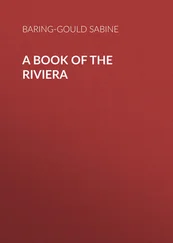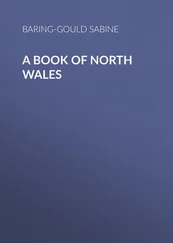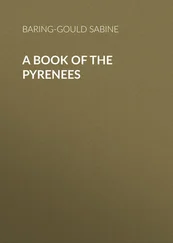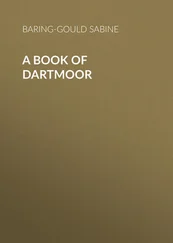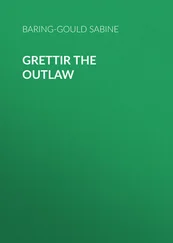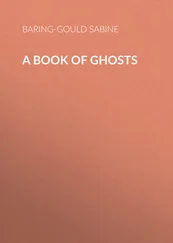Sabine Baring-Gould - A Book of the West. Volume I Devon
Здесь есть возможность читать онлайн «Sabine Baring-Gould - A Book of the West. Volume I Devon» — ознакомительный отрывок электронной книги совершенно бесплатно, а после прочтения отрывка купить полную версию. В некоторых случаях можно слушать аудио, скачать через торрент в формате fb2 и присутствует краткое содержание. Жанр: foreign_antique, foreign_prose, на английском языке. Описание произведения, (предисловие) а так же отзывы посетителей доступны на портале библиотеки ЛибКат.
- Название:A Book of the West. Volume I Devon
- Автор:
- Жанр:
- Год:неизвестен
- ISBN:нет данных
- Рейтинг книги:4 / 5. Голосов: 1
-
Избранное:Добавить в избранное
- Отзывы:
-
Ваша оценка:
- 80
- 1
- 2
- 3
- 4
- 5
A Book of the West. Volume I Devon: краткое содержание, описание и аннотация
Предлагаем к чтению аннотацию, описание, краткое содержание или предисловие (зависит от того, что написал сам автор книги «A Book of the West. Volume I Devon»). Если вы не нашли необходимую информацию о книге — напишите в комментариях, мы постараемся отыскать её.
A Book of the West. Volume I Devon — читать онлайн ознакомительный отрывок
Ниже представлен текст книги, разбитый по страницам. Система сохранения места последней прочитанной страницы, позволяет с удобством читать онлайн бесплатно книгу «A Book of the West. Volume I Devon», без необходимости каждый раз заново искать на чём Вы остановились. Поставьте закладку, и сможете в любой момент перейти на страницу, на которой закончили чтение.
Интервал:
Закладка:
There is, perhaps, in the east of Devon a preponderating element of Saxon, but I have observed in the Seaton and Axminster district so much of the dark hair and eye, that I believe there is less than is supposed, and that there is a very large understratum of the earlier Silurian. Perhaps in North Devon there may be more of the Saxon. West of Okehampton there is really not much difference between the Devonian and the Cornishman, but of this more presently.
It is remarkable that the Devonshire dialect prevails in Cornwall above a diagonal line drawn from Padstow to Saltash, on the Tamar; west of this and below it the dialect is different. This is probably due to the Cornish tongue having been abandoned in the west and south long subsequent to its disappearance in the north-east. But this line also marks the limits of an Irish-Gwentian occupation.
The dialect is fast dying out, but the intonation of the voice will remain long after peculiar words have ceased to be employed.
The "z" has a sound found nowhere else, due to the manner in which the tongue is turned up to the palate for the production of the sound; "ou" and "oo" in such words as "you" and "moon" is precisely that of the French u in "lune."
Gender is entirely disregarded; a cow is a "he," who runs dry, and of a cock it is said "her crows in the morn." But then the male rooster is never a cock, but a stag.
The late Mr. Arnold, inspector of schools, was much troubled about the dialect when he came into the county. One day, when examining the school at Kelly, he found the children whom he was questioning very inattentive.
"What is the matter with you?" he asked testily.
"Plaaze, zur, us be a veared of the apple-drayne."
In fact, a wasp was playing in and out among their heavily oiled locks.
"Apple-drayne!" exclaimed Mr. Arnold. "Good gracious! You children do not seem to know the names of common objects. What is that bird yonder seated on the wall?" And he pointed out of the window at a cock.
"Plaaze, zur, her's a stag."
"I thought as much. You do not know the difference between a biped and a quadruped."
I was present one day at the examination of a National School by H.M. Inspector.
"Children," said he, "what form is that?"
"A dodecahedron."
"And that?"
"An isosceles triangle."
"And what is the highest peak in Africa?"
"Kilima Ndjaro."
"Its height?"
"Twenty thousand feet."
"And what are the rivers that drain Siberia?"
"The Obi, the Yenesei, and the Lena."
Now in going to the school I had plucked a little bunch of speedwell, and I said to the inspector, "Would you mind inquiring of the children the name of this plant?"
"What is this plant?" he demanded.
Not a child knew.
"What is the river that flows through your valley?"
Not a child knew.
"What is the name of the highest peak of Dartmoor you see yonder?"
Not a child knew.
And this is the rubbish in place of education that at great cost is given to our children.
Education they do not get; stuffing they do.
They acquire a number of new words, which they do not understand and which they persistently mispronounce.
"Aw my! isn't it hot? The prepositions be runin' all hover me."
"Ay! yü'm no schollard! I be breakin' out wi' presbeterians."
The "oo" when followed by an "r" has the sound "o" converted into "oa"; thus "door" becomes "doar."
"Eau" takes the sound of the modified German "ü"; thus "beauty" is pronounced "büty."
"Fe" and "g" take "y" to prolong and emphasise them; thus "fever" becomes "feyver," and "meat" is pronounced "mayte."
"F" is frequently converted into "v"; "old father" is "ole vayther." But on the other hand "v" is often changed to "f," as "view" into "fü."
The vowel "a" is always pronounced long; "landed" is "lānded," "plant" is "plānt." "H" is frequently changed into "y"; "heat" is spoken of as "yett," "Heathfield" becomes "Yaffel," and "hall" is "yall."
"I" is interjected to give greater force, and "e" is sounded as "a"; "flesh" is pronounced "flaish." "S" is pronounced "z," as in examples already given. "O" has an "ou" sound in certain positions, as "going," which is rendered "gou-en." "S" in the third person singular of a verb is "th," as "he grows," "a grawth," "she does" is "her düth."
Here is a form of the future perfect: "I shall 'ave a-bin an' gone vur tü dü it."
There is a decided tendency to soften harsh syllabic conjunctions. Thus Blackbrook is Blackabrook, and Matford is Mattaford; this is the Celtic interjected y and ty .
This is hardly a place for giving a list of peculiar words; they may be found in Mrs. Hewett's book, referred to at the end of this chapter, and collected by the committee on Devonshire provincialisms in the Transactions of the Devonshire Association .
As a specimen of the dialect I will give a couple of verses of a popular folk song.
"The gügü es a purty burd,
'Er zingeth as er vlieth;
'Er bring'th güde tidin's,
'Er tell'th naw lies;
'Er zucketh swate vlowers
Tu kaype 'er voice clear,
An' whan 'er zingeth gügü
Tha zummer drāeth near.
"Naw āll yu vair maidens
Wheriver yü be,
Your 'earts dü nat 'ang 'em
On a zicamore tree.
The layfe it will wither,
The mores (roots) will decay;
Ah me, I be waistin'
An' vaydin' away."
The Devonian and Cornishman will be found by the visitor to be courteous and hospitable. There is no roughness of manner where unspoiled by periodic influx of strangers; he is kindly, tender-hearted, and somewhat suspicious. There is a lack of firmness of purpose such as characterises the Scotchman; and a lively imagination may explain a slackness in adhesion to the truth. He is prone to see things as he would like them to be rather than as they are. On the road passers-by always salute and have a bit of a yarn, even though personally unacquainted; and to go by in the dark without a greeting is a serious default in good manners. A very marked trait especially noticeable in the Cornish is their independence. Far more intimately than the inhabitants of any other part of England, they are democrats. This they share with the Welsh; and, like the Welsh, though politically they are Radicals, are inherently the most conservative of people.
It is a peculiarity among them to address one another by the Christian name, or to speak of a man by the Christian name along with the surname, should there be need to distinguish him from another. The term "Mr." is rarely employed. A gentleman is "Squire So-and-so," but not a mister; and the trade is often prefixed to the name, as Millard Horn, or Pass'n John, or Cap'n Zackie.
There is no form of enjoyment more relished by a West Country man or woman than a "buryin'." Business occupations are cast aside when there is to be a funeral. The pomp and circumstance of woe exercise an extraordinary fascination on the Western mind, and that which concerns the moribund person at the last is not how to prepare the soul for the great change, but how to contrive to have a "proper grand buryin'." "Get away, you rascal!" was the address of an irate urchin to another, "if you gie' me more o' your saāce you shan't come to my buryin'." "Us 'as enjoyed ourselves bravely," says a mourner, wiping the crumbs from his beard and the whiskey-drops from his lips; and no greater satisfaction could be given to the mourners than this announcement.
On the other hand a wedding wakes comparatively little interest; the parents rarely attend.
The looks of Devonshire and Cornish lasses are proverbial. This is not due to complexion alone, which is cream and roses, but to the well-proportioned limbs, the litheness of form, uprightness of carriage, and to the good moulding of the features. The mouth and chin are always well shaped, and the nose is straight; in shape the faces are a long oval.
Читать дальшеИнтервал:
Закладка:
Похожие книги на «A Book of the West. Volume I Devon»
Представляем Вашему вниманию похожие книги на «A Book of the West. Volume I Devon» списком для выбора. Мы отобрали схожую по названию и смыслу литературу в надежде предоставить читателям больше вариантов отыскать новые, интересные, ещё непрочитанные произведения.
Обсуждение, отзывы о книге «A Book of the West. Volume I Devon» и просто собственные мнения читателей. Оставьте ваши комментарии, напишите, что Вы думаете о произведении, его смысле или главных героях. Укажите что конкретно понравилось, а что нет, и почему Вы так считаете.



